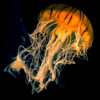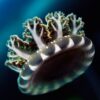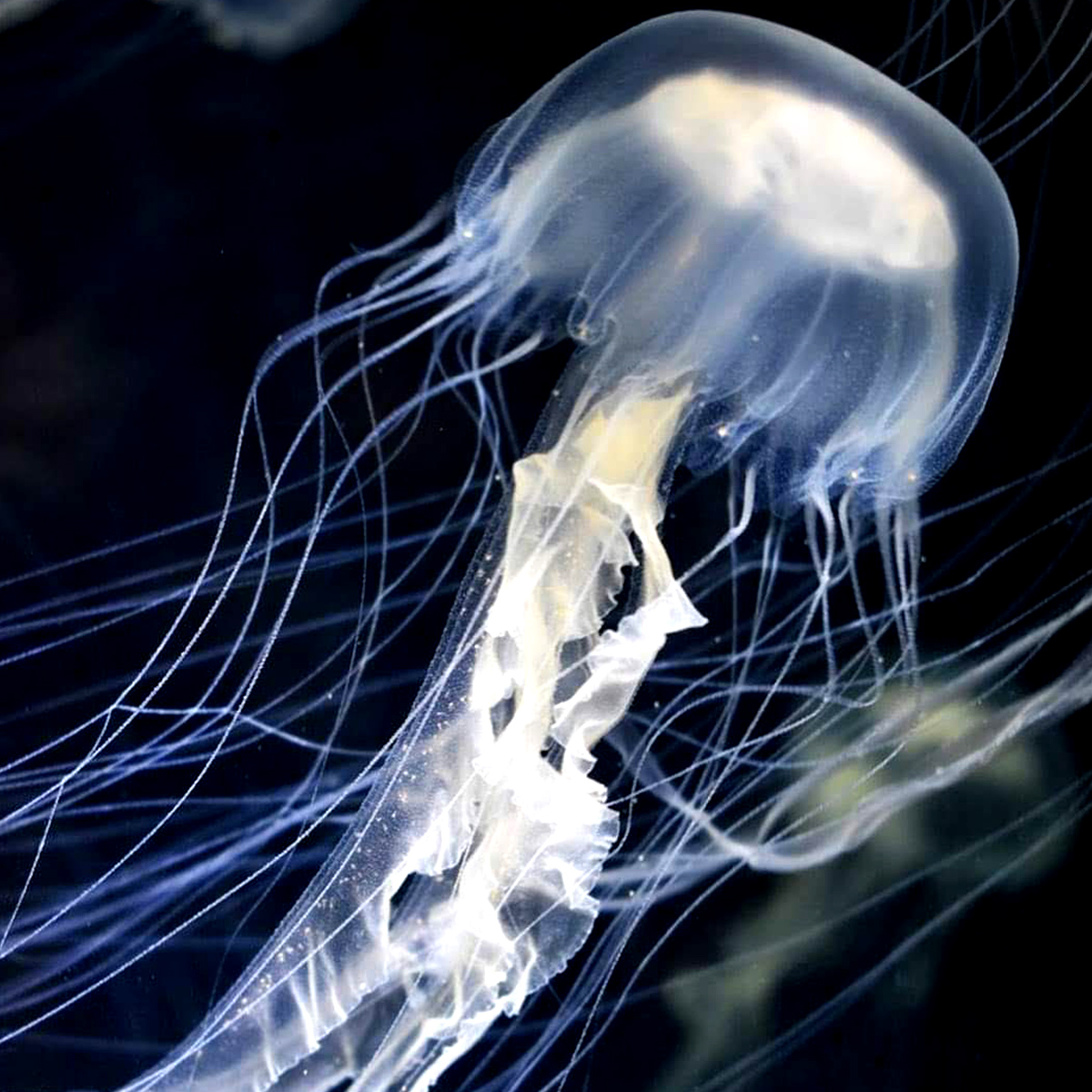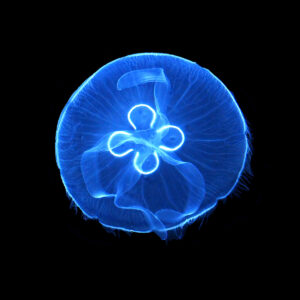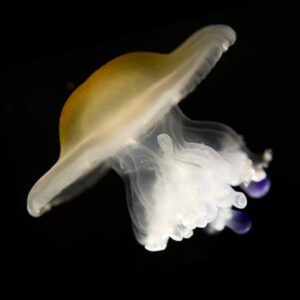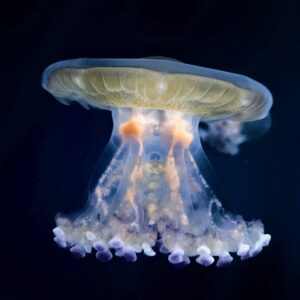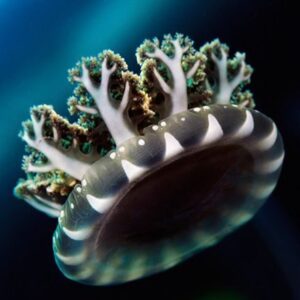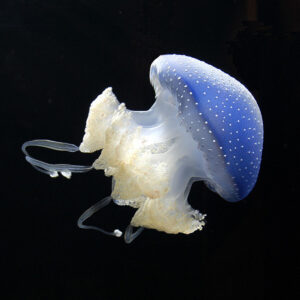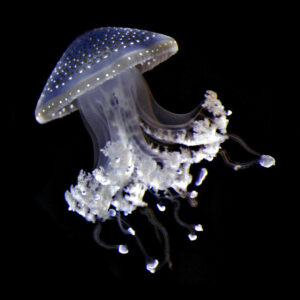1 Amakusa (Sanderia malayensis)
39,99€ IVA INCLUIDO
Out of stock
Description
Elongated jellyfish with 4 frilled oral arms that hang from a translucent bell, crowned with long trailing tentacles. The top of the bell may have warts containing stinging cells. The bell edge is lined with a short fringe. Coloration is translucent whitish, sometimes showing yellowish or pinkish tones, often with spots in those colors.
These are active swimmers and voracious feeders, even capable of preying on other jellyfish.
- Kingdom: Animalia
- Phylum: Cnidaria
- Class: Scyphozoa
- Order: Semaesostomeae
- Family: Pelagiidae
- Genus: Sanderia
- Species: Sanderia malayensis
- Common names: Amakusa Jellyfish, Japanese Jellyfish
| Temperature range: | 20-26ºC |
| Salinity: | 30-35 ppt |
| pH: | 7,9-8,4 |
| Alkalinity: | 7,4-8,4 dKH |
| Ammonia: | 0,0 ppm |
| Nitrites: | 0,0 ppm |
| Nitrates: | <20 ppm |
| Phosphates: | <2,0 ppm |
Distribution: Native to the Indo-Pacific region, including the Red Sea, Suez Canal, Pakistan, Malaysia, Philippines, and Japan.
Maximum size: Bell diameter: 3–15 cm
Tentacles can reach 70–100 cm
(In aquariums, size may be more limited.)
Lifespan: Several months in nature; up to 1 year in aquariums
Requires light: No, but a few hours of light are recommended
Feeding: Highly active swimmers that require a varied and nutritious diet, including:
Artemia salina nauplii
Coral food preparations
Jellyfish-specific food
Rotifers (live or frozen)
Invertebrate food mixes
Frozen cyclops
Do not feed red plankton (Calanus species)
Stinging: Yes
Although their venom is not well studied, it can cause mild skin lesions.
Use gloves when working in the tank, and when possible, use long tools to avoid putting your hands in the water.
Care level: Medium
They are very active swimmers and require a high quantity of food to prevent shrinking.
Maintain good water quality and regular cleaning.
Water flow should be medium to high.
To avoid damage to the bell and tentacle entanglement from collisions due to water current, tank surfaces should be as smooth and clean as possible.
If tentacles become entangled, feeding is the best way to help them unravel.
Additional information
| Weight | 1,5 kg |
|---|---|
| Dimensions | 34 × 21 × 15 cm |
| SIZE | S small, M Medium, L Big |

